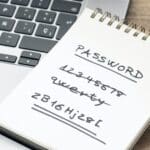Reading Time: 4 minutes
Have you ever considered the dangers lurking in the digital realm while sipping a refreshing margarita on a tropical beach? The risk of your personal information – emails, credit card details, browsing history – being exposed is more significant than you might imagine. It’s enough to take the joy out of your vacation. This calamity, however, can be prevented with one crucial tool – a VPN for travel. Let’s embark on a journey to uncover the intricacies of this cybersecurity essential and why it’s a must-have for any traveler.
VPN Unveiled: The Underlying Technology
 A Virtual Private Network (VPN) isn’t just a fancy term; it’s a potent tool safeguarding your online footprint. At its core, a VPN is about encryption and secure tunneling. When you activate a VPN, it encrypts your data, transforming it into a complex code that’s nearly impossible to break. This encrypted data is then transmitted through a secure virtual tunnel to its destination.
A Virtual Private Network (VPN) isn’t just a fancy term; it’s a potent tool safeguarding your online footprint. At its core, a VPN is about encryption and secure tunneling. When you activate a VPN, it encrypts your data, transforming it into a complex code that’s nearly impossible to break. This encrypted data is then transmitted through a secure virtual tunnel to its destination.
The encryption shields your information, ensuring no unauthorized party can read it. Secure tunneling, on the other hand, masks your online identity by hiding your IP address, making it appear as though you’re accessing the internet from a different location. This combined technology of encryption and tunneling fortifies your digital presence, providing you with a safer, more private online experience.
5 Convincing Reasons to Use a VPN for Travel
- Bulletproof Data Protection: Public networks at airports, cafes, or hotels are playgrounds for cybercriminals. A VPN is your invisible armor protecting your data on these networks.
- Breaking Down Geo-Restrictions: Certain websites and streaming services are region-specific. A VPN bulldozes these barriers, granting you global access.
- Dodging Price Discrimination: Noticed a sudden spike in hotel prices after a few searches? With a VPN, you can cloak your browsing history and location, preventing such price hikes.
- Securing Business Communication: If you’re a tech executive carrying out sensitive business transactions, a VPN ensures secure communication.
- Bypassing Internet Censorship: In several countries, internet access is heavily regulated. A VPN allows you to surf freely, ensuring uncensored access to information.
Learning from Experience: Stories of Cyber Perils
 Story 1: Alex, a business executive, was on a work trip to a trade fair in Europe. He connected to the free Wi-Fi at his hotel to review an important proposal, unaware of the lurking dangers. The following day, he discovered that his business emails and sensitive client information were accessed and leaked. A VPN could have saved Alex from this digital disaster, encrypting his data, and keeping it out of the hands of cybercriminals.
Story 1: Alex, a business executive, was on a work trip to a trade fair in Europe. He connected to the free Wi-Fi at his hotel to review an important proposal, unaware of the lurking dangers. The following day, he discovered that his business emails and sensitive client information were accessed and leaked. A VPN could have saved Alex from this digital disaster, encrypting his data, and keeping it out of the hands of cybercriminals.
 Story 2: Rebecca, an avid movie enthusiast, planned a month-long trip to East Asia. After a long day of sightseeing, she found herself unable to unwind with her favorite Netflix series due to regional restrictions. Her friend suggested using a VPN, which would mask her IP address, making it seem like she was still in her home country. With the VPN activated, Rebecca was able to enjoy her favorite shows, adding comfort to her travel adventure.
Story 2: Rebecca, an avid movie enthusiast, planned a month-long trip to East Asia. After a long day of sightseeing, she found herself unable to unwind with her favorite Netflix series due to regional restrictions. Her friend suggested using a VPN, which would mask her IP address, making it seem like she was still in her home country. With the VPN activated, Rebecca was able to enjoy her favorite shows, adding comfort to her travel adventure.
Questions to Consider
What cybersecurity challenges have you faced during your travels? Have you ever fallen prey to digital threats while abroad? How do you safeguard your personal information when on the go?
FAQs to Clear Your Doubts
Is public Wi-Fi really a hotbed for digital threats?
Yes, public Wi-Fi networks are typically unencrypted, making it easier for hackers to eavesdrop on your online activity. A VPN encrypts your data, rendering it useless to anyone trying to intercept it.
Does a VPN assure complete anonymity online?
Although a VPN significantly bolsters your digital privacy, it doesn’t guarantee complete anonymity. You should continue to adopt responsible internet practices even when using a VPN.
Are VPNs legal and usable everywhere?
VPNs are legal and usable in most places, but certain countries have strict regulations or outright bans. It’s crucial to familiarize yourself with the local laws of your travel destination.
Will my internet speed be affected when using a VPN?
VPN usage can slightly influence your internet speed, primarily due to the encryption process and the distance data travels to the VPN server. However, the impact is typically minor and barely noticeable.
Which VPN is the best fit for travel?
The “best” VPN for travel depends on individual requirements. Key considerations should include security protocols, server locations, speed, cost, and ease of use.
Secure Digital Explorations: The Wrap-Up
In our digitally connected world, securing your online presence, especially while traveling, is not just wise but necessary. A VPN for travel acts as your personal cybersecurity tool, ensuring your sensitive information remains secure from prying eyes. As you pack your essentials for your next trip, don’t forget to include a VPN – your passport to safer, stress-free digital experiences abroad.








